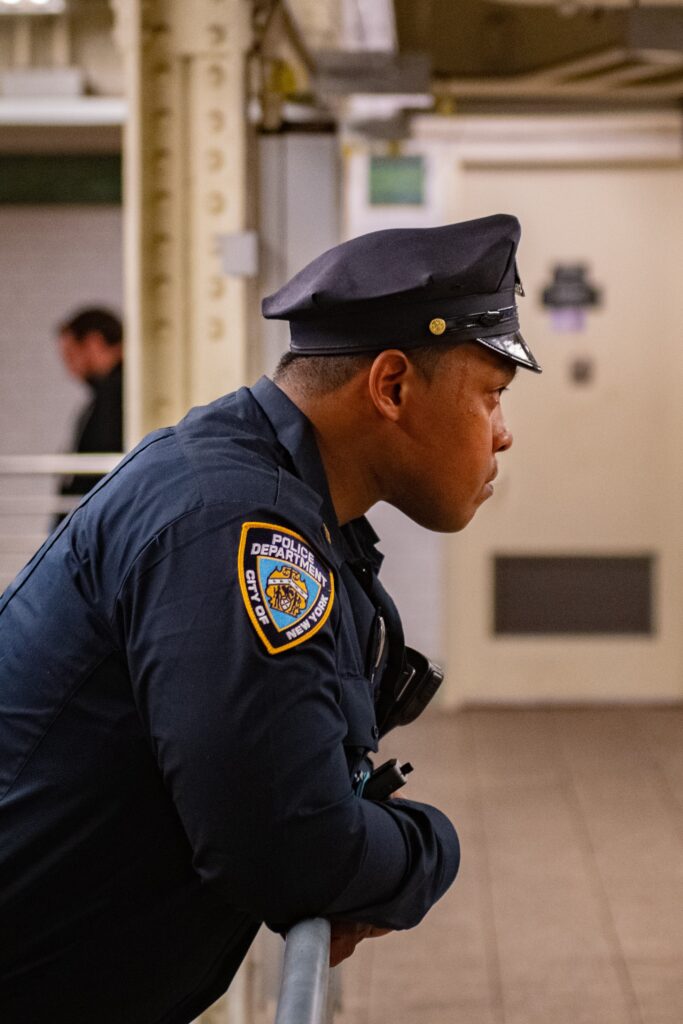
During our shifts. especially 2nd shift (1445-2300 hours), we officers would expect to hear an audible tone come over our radios at least 2-3 times. It would be loud and would last about three seconds, after which we would get the ten code telling us what type of call it was and the details afterwards. It seemed like on the weekends the amount of tones we would be subject to would make up for some of the slow days we had during the week. Upon dispatch activating the tone, initially adrenaline would spike in most of us (even in some of the mega egotistical officers) awaiting what we would soon hear on the radio and see what would come across our in-car computer screen. The tone was there to get everyone’s attention. And it was quite effective.
When the tone was activated, all over the city of Suffolk you would hear expletives erupt from the mouths of most officers. Am I close enough to the location of the call, or will dispatch send me as the primary officer to handle this call? What can I expect when I get there? Where are my assisting officers coming from and will I need to manage on my own for several minutes awaiting their arrival? Did I tell my spouse and kids that I loved them before I headed into work?
Sometimes, just after the tone, it seemed like dispatch would be intentionally inserting a dramatic pause, keeping us in suspense of what the call was about (but they wouldn’t do that. It may be they are just getting information to the primary dispatcher and they are waiting to get a good portion of it before giving us the details of the call).
Some of the calls that merit a pre-broadcast tone are below. The list is in no way exhaustive. Suffice to say, if it requires us to put on our lights and siren to get there, you can just add it to the list yourself.
Shooting
Stabbing
Assault with deadly weapon
Assault in progress
Rapes in progress or just occurred
Robberies in progress or just occurred
Breaking and Entering in progress or just occurred
Felony theft in progress
Vehicle crash with either reported or expected injuries involved
Vehicle pursuit by either another agency through our city or by one of our own officers
Anytime an officer activates his emergency button or calls in a 10-1 (Officer needs help) situation.
Natural disaster or the potential of one
Anytime a lower priority call will suddenly escalate into a volatile event.
The purpose for this tone was essential. It was telling officers all over the city to momentarily drop what they are doing (unless they are involved in a toned call themselves) and pay attention. Something urgent is about to come across the radio waves. It could be devastating if the closest officer didn’t pick up on the call and also didn’t respond to a situation in which a life could have been saved. So, even though we didn’t like hearing it, at least we understood why we did.
Police work in itself is adrenaline packed sometimes, but if you could imagine hearing that tone several times a day, along with the subsequent heart pounding activity of the calls themselves, multiplied over 20 + years, you could understand that this will most likely have an adverse effect on the older officers as they retire. Every day they put on their uniform and go on duty, they knew each day was different, and they were still tasked with the responsibility of being constantly vigilant. Now, upon retirement, unless they get a job where they get some form of constant stress, their body system eventually relaxes, but the damage to, let’s say, the cardiovascular system, the nervous system, and any organ suffering from the abuse of drinking alcohol, smoking, and abuse of prescription medication in order to deal with past atrocities, is already done.
Oh, and let me not forget our First Responder Cousins, the firefighters, who experience almost every one of their calls by hearing several different tones. So, I say to them, God bless them.
So, I got curious just about the tones themselves and not the other abuses, and decided to Google “Can daily spikes of adrenaline be bad for one’s health?”, and this is what Google prefaced all of the listed websites with– a sort of snippet answer:
“Experiencing some stress is normal, and sometimes even beneficial for your health. But over time, persistent surges of adrenaline can damage your blood vessels, increase your blood pressure, and elevate your risk of heart attacks or stroke. It can also result in anxiety, weight gain, headaches, and insomnia.”
We have adrenaline initially as a benefit to our survival. It puts us in a fight or flight (hopefully not freeze) mode. The adrenaline is pumped to our mind and muscles for acute awareness and extra spurts of energy to assist us in dealing with what we have in front of us. But this is the epitome of how having too much of a good thing can be bad for you.
Now I thank God three plus years after retirement that I am in relatively good health. No concerns as of yet on the horizon. However, that doesn’t mean that my career won’t eventually come back and haunt me, medically speaking. I try not to think about it.
So, you might be wondering why I would write an article about something that some might consider to be so benign or trivial, and you may ask what does it mean to the citizen reading this article. The first reason is, so the public can catch a glimpse into the life of police officers’ and firefighters’ (I’ll not leave out paramedics’) daily sacrifice, perhaps to generate some understanding and appreciation for what they experience on a daily basis.
The second reason is for the benefit of the first-responders themselves. If you are married to, are a family member of, or are a friend or associate of, a first responder, please support them and remind them of what I am presenting for them here. Perhaps have them read this blog.
For those of my fellow public servants who are already reading this, do not make your work your entire identity. Let it not be something you think about constantly on your off time. Be a mother, a father, a painter, a sportsman or woman, a hobbyist, a mechanic putting together and restoring old cars, a reader, a runner, a volunteer, anything to bring your body down off of hyper-vigilance in your spare time. Don’t let constant stress be your mainstay. Don’t find your relief in the bottom of a bottle. Along with your physical fitness, take time for your mental and emotional fitness as well. Seeking help does not make you weak. Those officers around you who seem to have it all together, if they do not seek help for themselves, are just pushing all of their emotions down, and it is only a matter of time that they will explode or have a meltdown. The amount of first responder suicides is on the rise. Just one lost life is too many.
Take care of yourself and beat the statistics of first-responder life expectancy after retirement (which incidentally is an average of five years). Do your duty, but be there for your grandchildren as well.
++++++++++++++++++++++++++
DON’T LET YOUR ATTACKER GET TO THIS POINT–PROTECT YOURSELF NOW AND
CLICK BELOW!!

